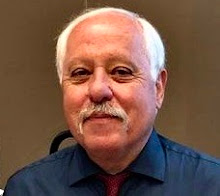I first met Steve Ponder (orange vest), a professor of news/editorial at the University of Oregon School of Journalism, when I was hired as an instructor of public relations. We hit it off, having a common interest in hiking, and particularly river rafting, on the great rivers of the Pacific Northwest. Like me, he was hired by Ken Metzler.
Steve passed away this month at age 78. Turns out, we had both worked for the Lake Wenatchee Ranger District of the Wenatchee National Forest, he in the 1960s and me in the 1970s. We shared stories of hiking the Buck Creek Trail and exploring the wonders of the Glacier Peak (bottom photo) and Alpine Lakes Wilderness Areas.
An active volunteer with the Deschutes Land Trust and other environmental groups, he was an avid outdoorsman, and spent many years conquering mountain trails on foot and wilderness rivers behind the oars of a raft, including the Colorado River five times through the wonders of the Grand Canyon.
Steve was born in Bakersfield, California and grew up in Wenatchee, Washington, working his way through college at the University of Washington as a U.S. Forest Service lookout. During his journalism career, he reported for the Associated Press and the Seattle Post-Intelligencer, among others.
A favorite memory of Steve was how he responded to the question: "Why did you switch from being a journalist to being a professor of journalism?" His stock response was that he had "three main reasons: June, July and August." He loved to raft the rivers of the Pacific Northwest and would look for any excuse to go.
After Steve retired from UO SOJC, he continued to teach classes, as is the custom for retiring tenured professors, and we shared an office in the UO SOJC. We jokingly deferred to ourselves as the "denizens" of 313 Allen and spent our free time reminiscing about the days of yore. Steve was a great colleague, mentor and friend.
Friday, August 14, 2020
Saturday, August 8, 2020
An Environmental Ethos
You would think that 50 years after the first Earth Day, we would have made progress toward making our home planet more livable. While there was progress at first, we've been backsliding of late, thanks to the current administration in the White House. To paraphrase Pogo, we have seen the enemy, and it is us.
As climate change makes the planet less livable, a mass migration has begun. Scientists can project such changes with precision, but until recently, little has been known about the human consequences of those changes. As their land fails them, hundreds of millions of people will choose between flight or death.
For most of human history, people have lived within a narrow range of temperatures, in places where the climate supported abundant food production. But as the planet warms, that band is suddenly shifting northward. According to the National Academy of Sciences, the planet could see a temperature increase of epic proportions.
According to a recent study, we could experience greater temperature increases in the next 50 years than in the last 6,000 years combined. By 2070, the kind of extremely hot zones that now cover less than one percent of the land surface could cover nearly 20 percent of the land. So what are we to do?
For one thing, we must vote in a national administration that is more sympathetic to the environment. The current administration clearly is not. We must also look to the future for solutions and energy from young climate activists who are taking up the cause, like Greta Thunburg and Jamie Margolin, a native of Seattle.
Both appeared at a joint hearing before congressional committees the Rayburn House Office Building in Washington, D.C. "The status quo (is) the climate crisis," Margolin said, noting that it is still frightening to think about the future. One thing is for sure, if we don't do something soon, we will end up like Bizarro World.
As climate change makes the planet less livable, a mass migration has begun. Scientists can project such changes with precision, but until recently, little has been known about the human consequences of those changes. As their land fails them, hundreds of millions of people will choose between flight or death.
For most of human history, people have lived within a narrow range of temperatures, in places where the climate supported abundant food production. But as the planet warms, that band is suddenly shifting northward. According to the National Academy of Sciences, the planet could see a temperature increase of epic proportions.
According to a recent study, we could experience greater temperature increases in the next 50 years than in the last 6,000 years combined. By 2070, the kind of extremely hot zones that now cover less than one percent of the land surface could cover nearly 20 percent of the land. So what are we to do?
For one thing, we must vote in a national administration that is more sympathetic to the environment. The current administration clearly is not. We must also look to the future for solutions and energy from young climate activists who are taking up the cause, like Greta Thunburg and Jamie Margolin, a native of Seattle.
Both appeared at a joint hearing before congressional committees the Rayburn House Office Building in Washington, D.C. "The status quo (is) the climate crisis," Margolin said, noting that it is still frightening to think about the future. One thing is for sure, if we don't do something soon, we will end up like Bizarro World.
Subscribe to:
Posts (Atom)




